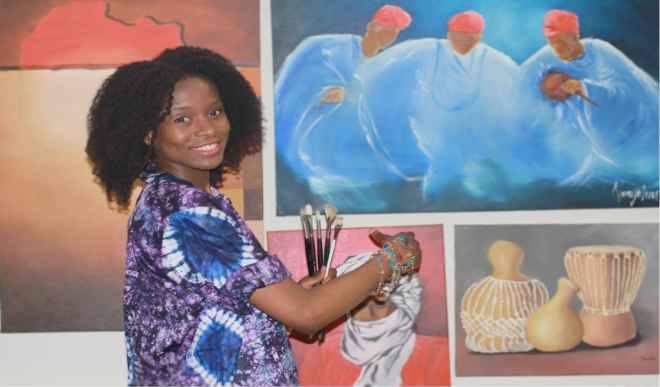
You were among those shortlisted for the 2018 Caine Prize for African Writing. How did you receive the news?
My nomination for the Caine Prize award came as a surprise to me. I had no idea that the editor at Red Rock Review, which published my story, had submitted my story for the award. She called me out of the blue to let me know that she had submitted my story and that I had been shortlisted. Making the shortlist has been surreal.
How did it feel getting so close, and then not clinching the ultimate number one prize?
I feel blessed to have my work shortlisted and to share this privilege with other very talented writers from around the continent. Making the shortlist has been a positive and affirming experience in many ways. It has certainly given me the courage and motivation to keep writing and to keep telling stories.
You made the shortlist for ‘American Dream’. What triggered the story?
I wanted to tell a story that explored the intersection of sexuality, gender, culture, religion, and socioeconomics. I was curious about what happens when cultural practices negatively impact women and children in Nigeria. In thinking about these themes, Ade’s story of growing up in Makoko came to me.
What did it take for you to depict life in Makoko, Lagos’s floating slum, the way you did?
I have been fascinated by Makoko since I was a kid. This is a unique community in Nigeria. It is a conspicuous, yet isolated community in many ways. Unfortunately, when Makoko enters our national dialogue, it is usually cast in an unflattering light. I wanted to learn about the community in an unbiased way, so I conducted as much research as I could and tried to understand made this community a resilient, thriving community despite its socioeconomic and political challenges.
Aside being a writer, you are also a visual artist. How do you juggle the two? Is there a time where one takes precedence over the other?
I find that the two art forms compliment each other. For example, while working on a painting or drawing a portrait, I might be inspired by the features of the form I am creating on the canvas or paper, and I may ascribe the features of the figure or form on the canvas to a character in my writing. There are times when they are not as complimentary-mostly when I get into a flow in one art form. In those moments, it becomes a bit more challenging to manage my time and ensure that I don’t neglect the other art form.
Would you say you have been an artist longer than you have been a writer? What is your story?
I grew up in Lagos, and I was lucky to have parents who appreciated the arts, and to attend a school where art was not regarded as the least important subject. My parents and school created many outlets for me to explore and express my artistic interests. I would say that I’ve been a visual artist much longer than I’ve been a writer. I remember making art since I was five years old. My school participated in many state and national art competitions, and I always made and submitted my works for consideration in those competitions. They were a great experience that taught me to focus my work around themes; for example, the theme of a competition could be the environment or child abuse or health.
What usually inspires your paintings?
I’m fascinated by precolonial African history, jazz, gender and identity, race, and the socioeconomic factors that affect the quality of life. These themes usually inspire and make appearances in my work.
What would you say influenced your flair for the arts from childhood?
My parents have been my greatest supporters and influencers. I grew up in a house surrounded by colourful art. My dad enjoyed supporting the local art community. I remember waking up in the morning to find new art pieces around the house, and I remember standing in front of the new works and taking a moment to appreciate the art, to imagine myself in the works, which were mostly figurative, and to imagine what the artist may have been thinking about while creating the work. My parents also encouraged me to spend my free time creating art, instead of watching television or playing outside. They knew that I enjoyed drawing and they never discouraged this interest. I also have to give credit to my art teachers who exposed me to African, and more specifically, Nigerian artists from a young age. I was blessed to have a variety of artists who looked like me that I could look up to and admire.
How do you view the development of African literature?
African literature is evolving. I’m excited to see the complex myriad stories coming from the continent-stories that are created, not just for a western audience. I am excited that we are telling our stories in their many forms and that we are unafraid to explore controversial subjects.
What are you working on at the moment?
Lately, I have been interested in abstract art. I’m putting together a series that explores the use of lines and African symbols to tell a story. I can’t wait to share it soon.




